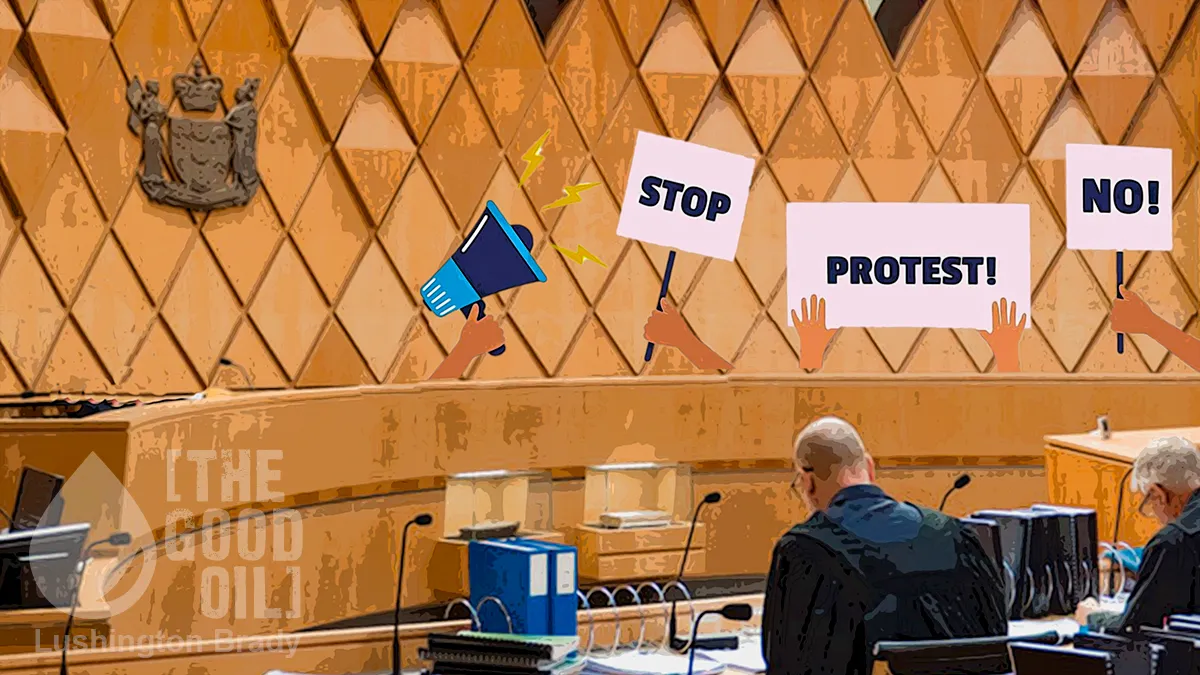Table of Contents
Are Western democracies governed by elected representatives any more, or have we just handed government over to an unelected elite of activist judges?
Too often, judges are taking it on themselves to not stay in their lane of interpreting the laws written by elected officials, but effectively making their own out of whole cloth. Even as far back as 1973, the US Supreme Court ruled on Roe v Wade, based not on anything even vaguely laid out in the Constitution, but the judges’ ‘I Just Reckon’. It took 50 years to correct that judicial overreach.
Here in Australia, the High Court is particularly prone to judicial flights of fancy. The so-called ‘implied right to freedom of speech’, for instance – which was based on nothing but their ‘I Just Reckon’ that To sustain a representative democracy embodying the principles prescribed by the Constitution, freedom of public discussion of political and economic matters is essential. If it was, then why didn’t the framers of the Constitution say so?
More recently, bizarre rulings by the High Court have resorted to endorsing magic with racial overtones, with their claim of a ‘unique spiritual attachment’ of Aborigines. This further led them to conclude that two men who were not born in Australia and had never taken out citizenship, were nonetheless inalienably citizens because of their claimed Aboriginal ancestry.
But the over-imaginative beaks on the Australian High Court have nothing on the fever-dreams of New Zealand’s Supreme Court.
In February this year, I wrote about a surprising decision from New Zealand’s Supreme Court (Absurd: New Zealand courts can now decide on climate change). The Court allowed a climate change case against seven large companies to proceed, despite New Zealand’s emissions being a mere rounding error in global terms.
To the surprise of this Australian, it turns out that NZ only established its own Supreme Court in 2003. Probably as a consequence, its proved as uselessly an un-democratic entity as NZ’s so-called Bill of Rights.
Earlier this year, Jack Hodder KC, a respected lawyer who was involved in the Supreme Court’s establishment two decades ago, reflected on this anniversary. In a much-discussed paper, Hodder delivered a stern critique of its recent decisions (albeit wrapped in the politest legal prose).
The New Zealand Initiative aren’t nearly so reticent.
Authored by our chair Roger Partridge, a former litigation partner and chair at one of New Zealand’s leading law firms, “Who Makes the Law? Reining in the Supreme Court” argues that New Zealand’s highest court has strayed beyond its proper bounds.
Both Hodder and Partridge have sounded alarm bells about two key issues. First, they claim the Supreme Court has adopted a troublingly loose approach to interpreting laws passed by parliament.
Second, they argue the court is reshaping long-standing legal principles based on judges’ perceptions of changing social values.
Like the Australian High Court, the Supreme Court is seeing fit to shoe-horn Magic Māoridom over and above common law.
In the 2022 ‘Ellis’ case, the New Zealand Supreme Court considered whether a deceased person’s appeal against criminal convictions could continue. Its decision broke with the common law tradition that legal rights typically end with death. Despite no Māori connection to the case, the Court took it upon itself to consider Māori customary law (tikanga) in its decision-making. This overturned long-standing rules without setting out a clear new framework, creating uncertainty in the legal system.
New Zealanders might as was well give up voting, too, if unelected judges are going to take it on themselves to decide whether or not they like the laws elected representatives write.
The 2021 ‘Fitzgerald’ case concerned New Zealand’s controversial ‘three strikes’ sentencing law, which mandated maximum sentences for repeat offenders. Despite clear statutory language requiring judges to impose maximum sentences for third-strike offences no matter what, the Supreme Court effectively rewrote the law to avoid what it saw as an unjust outcome in a case involving a relatively minor offence.
In the 2022 ‘Make it 16’ case about lowering the voting age, the Supreme Court waded into what many would consider deeply political waters. It declared the voting age of 18 inconsistent with New Zealand’s Bill of Rights, despite the Bill of Rights itself expressly protecting voting rights only for those aged 18 and over.
These cases, Partridge argues, show a court increasingly willing to stretch or ignore clear statutory language and reshape common law principles based on judges’ views of societal values.
Well, they’re better than you – and they know it.
When unelected judges make decisions that look more like policy choices, it chips away at the idea that our laws come from the people we elect. It is as if the referee in a football match started changing the rules mid-game, picked up the ball and joined one of the two teams.
Moreover, it introduces uncertainty into the legal system. Imagine trying to play a game in which the rules might change at any moment based on the referee’s personal views. That is the situation businesses and individuals face when they can no longer rely on clear laws or past court decisions to guide their actions.
If you think this is just a New Zealand problem with no relevance elsewhere, you would be mistaken.
Beside the already-outlined issues with the Australian High Court, the Democrats’ stated determination to ‘reform’ the US Supreme Court, including by expanding the bench to obviously stack it, shows just how political the courts have become.
So the problems are clear, but there are solutions, too – and our report lists them. They include targeted legislation to overturn problematic court decisions, amending key statutes to impose ‘guardrails’ against judicial overreach, and reforms to judicial appointment processes.
These are not, as the authors point out, abstract issues. They go to the fundamental question of a democracy: who makes the law?
Increasingly, unelected judges are deciding that they do, and bugger democracy.









